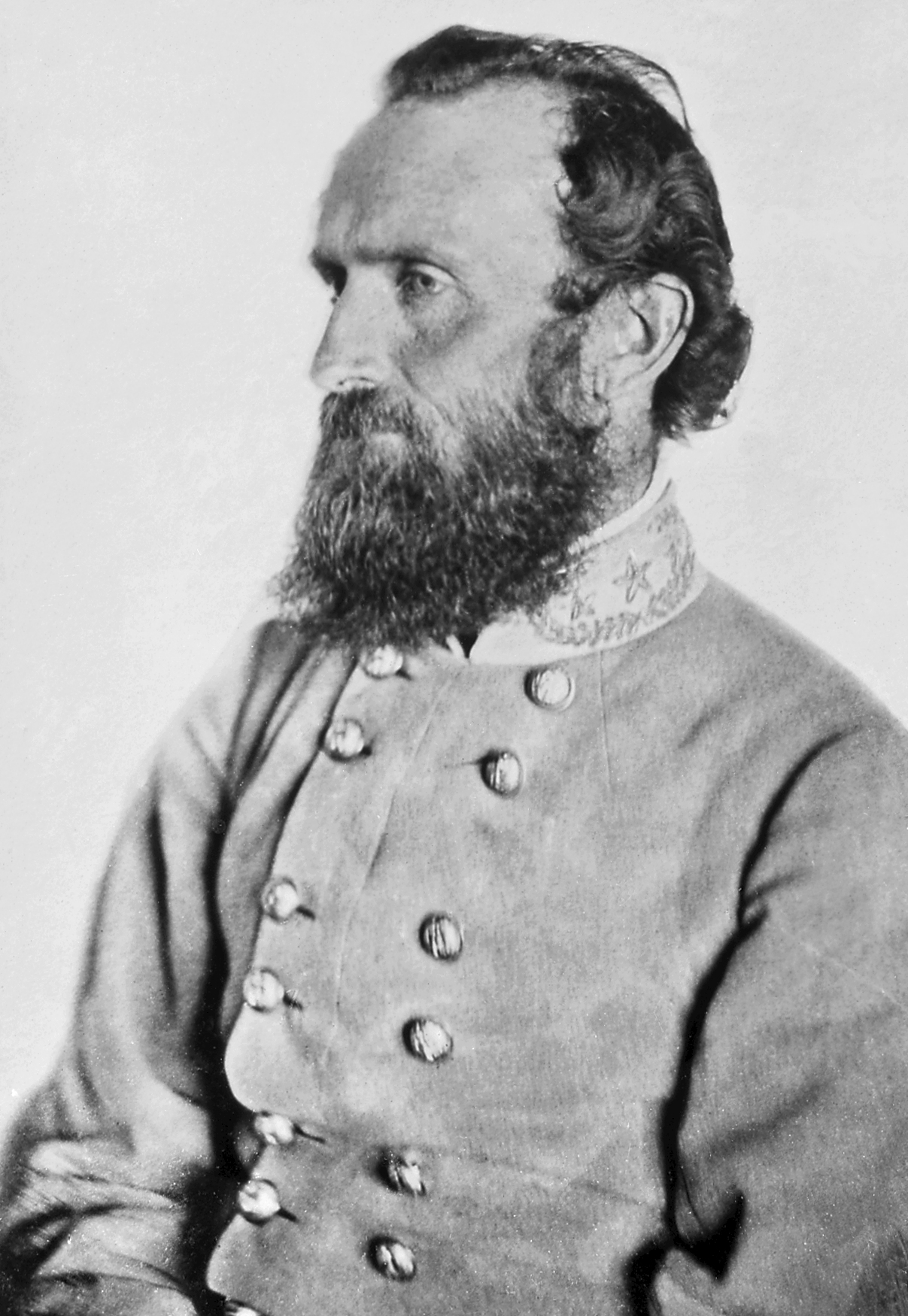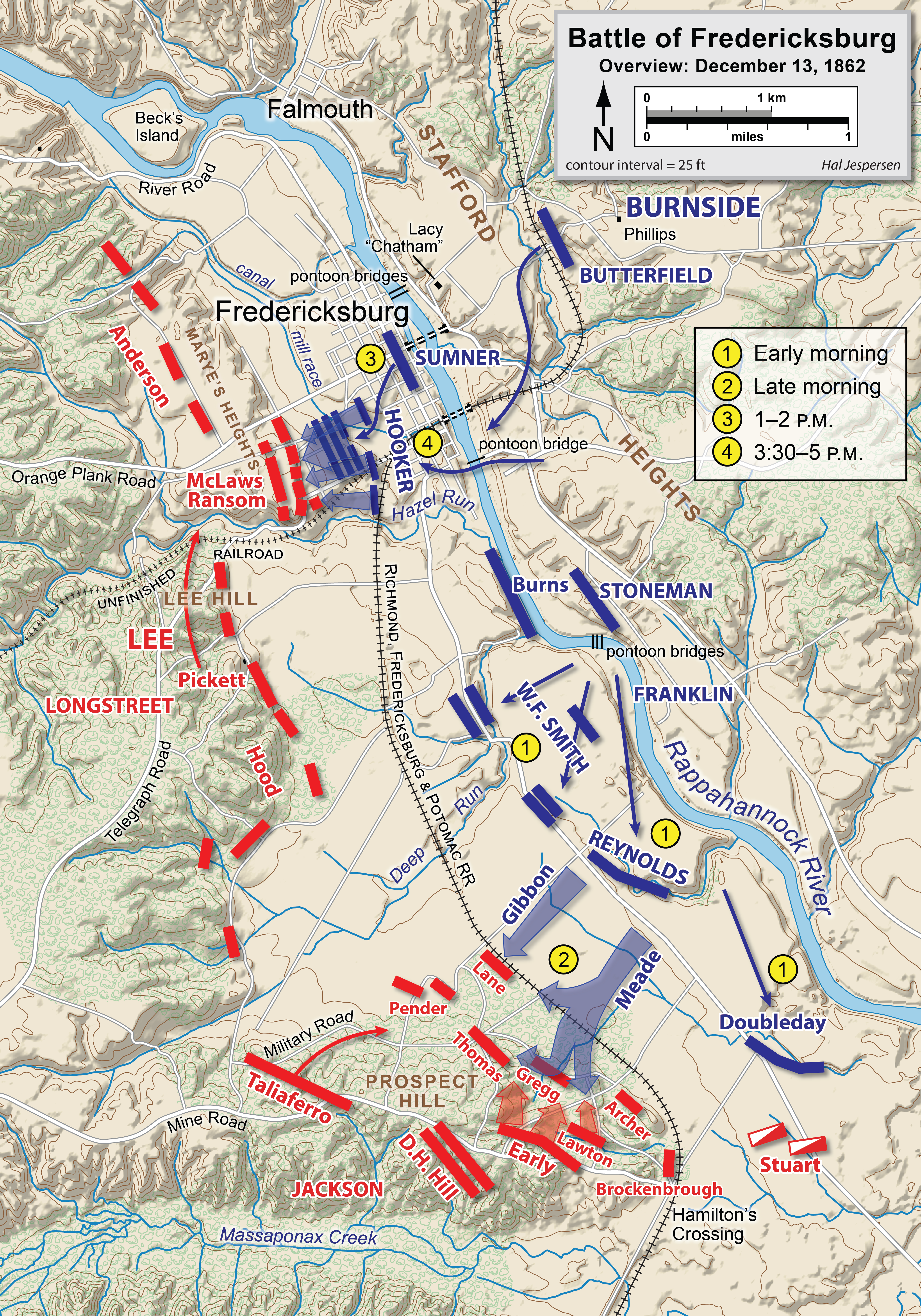The battle began in earnest on the morning of December 13th. On the right, Jackson was confident that his men could successfully maintain their position. As he commented to a staff officer, "Major, my men have sometimes failed to take a position, but to defend one, never! I am glad the Yankees are coming."
 |
| Jackson |
That morning, Jackson joined Lee and Longstreet for a council of war. His appearance made quite the stir:
As he dismounted, we broke into astonished smiles. He was in a spick and span new overcoat, new uniform with rank marks, fine black felt hat, and a handsome sword. We had never seen the like before, and gave him our congratulations on his really fine appearance. He said he “believed it was some of his friend Stuart’s doings”.Jackson and Stuart had one of the most unlikely friendships in the Civil War. At first look, they seemed exact opposites, Jackson, stern, reserved, careless in dress, Stuart, gay, outgoing and showy. However, they did have much in common. Both were firm Christians and aggressive in battle. The staff remembered that, "Jackson was more free and familiar with Stuart than with any other officer in the army, and Stuart loved Jackson more than he did any living man."
 |
| Stuart |
As the conference of the Confederate generals was brought to a close, Longstreet shouted out, "Jackson, what are you going to do with all those people over there?" "Sir," Jackson replied, with one of his favorite phrases, "we will give them the bayonet."
 |
| John Pelham |
The battle on the Confederate right began with the Yankees of George Meade's brigade advancing towards Jackson in long lines with their flags flying. A lone Confederate gun opened at 10:00 am on their flank. That gun was under John Pehlem, a brave young officer who had resigned from West Point to join the Confederacy, and commanded Stuart's horse artillery. His shots took effect, and another gun was brought up. Firing directly into a Union flank, he put a stop to the Union advance. Four Federal batteries on Stafford Heights opened on him, trying to knock him out so the advance could resume. One gun was disabled, but none the less, the gallant Pelhem continued to fire with the other. Lee, watching from a hill in the center of the Confederate line, commented that it was “glorious to see such courage in one so young.” The feat finally came to a close after about an hour when Pelhem ran out of ammunition. More Confederate artillery on Prospect Hill converged with Pelham. From these combined barrages the Federal advance was stalled for two hours.



0 comments:
Post a Comment